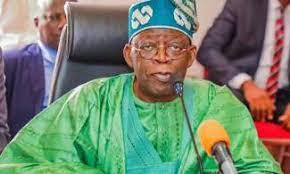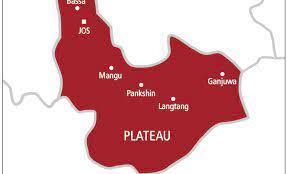Dr. Richard Munang, is the United Nations Environment Climate Change Coordinator for Africa. He speaks on the scourge of unemployment in Africa, and blamed it on failures of citizens to take responsibility to develop their countries and continent. MOSES JOHN presents the details.
Unemployment as a global phenomenon
In this 2019, average global unemployment has been reported to have reached the lowest levels in a decade at 5%, and the number of people with jobs has increased in the world’s largest economies. However in Africa, the situation is not as rosy. Unemployment is projected to have risen to exceed 30% in 2019 and young people will continue to be 3.5 times more likely than adults to be unemployed.
While this scenario is not what any of us would like to prevail, we can take courage in the words of one African proverb which reminds us that “every door has its own key”. Africa’s unemployment has its own key – and that key lies in us. Let us therefore be encouraged that the chronic unemployment challenge while grave has a solution that is within our reach.
Bad governance and unemployment
“Those who accomplish great things pay attention to little ones”, in the context of this question, whenever there is talk of governance in Africa, the responsibility is always deflected to government institutions, policy and laws. But the role of the individual citizens, and their omissions and commissions, is never brought to light and this is a seemingly small detail that is holding us back– personal responsibility failures.
A recent study found that far too many youths are willing to engage in malpractice in order to be wealthy. 50% of youth surveyed in the representative study said it doesn’t matter how a person makes money, as long as they do not end up in jail – implying they would steal to get wealth if they were sure the law would not catch up with them.
Thirty-five percentsaid directly that they would easily take or give a bribe. Simply put, what we are calling Africa now and future, the youth, are willing to circumvent the law to achieve their selfish ends. This then is to say that regardless of the laws and institutions in place, the culture among people is to look for loopholes and exploit them just to get ahead.
This selfish mindset is the source of Africa’s governance flaws – not just institutions because even these institutions are run by people. So, Africa’s unemployment boils down to failures of the citizens to take responsibility in developing their country and continent – of putting selfish interests before the urgency to develop solutions to the continent’s challenges.
ILO efforts in tackling the scourge
Social vices and insecurity are obvious consequences and they are before our eyes daily. But most important is solutions to the unemployment challenge. And for this, I think an African proverb puts this into perspective – that “one who causes others misfortune also teaches them wisdom”. Simply, this proverb reminds us that the challenges we face are disguised opportunities.
Among most notable challenges Africa faces that can be turned to become solutions to the very high unemployment is the high postharvest losses (PHLs) experienced in the continent. Africa loses food worth $48billion each year due to PHLs. To cover for these losses, food worth $35billion is imported. This implies $83billion can be recouped and turned to income opportunities along the entire value chain if the continent prioritises value addition to reverse these losses.
Second question is how we can add this value. For this, we must remember that “a man does not wander far from where his corn is roasting”. In context, this Africa proverb reminds us that the focus should be on leveraging on areas of our strength as a continent. Here, clean energy, especially solar comes to mind. Africa has the best solar resource in the entire planet.
Just 0.3% of the sun that shines the Sahara is equivalent to nearly all of Europe’s energy needs. Fabricating simple and accessible solutions like solar driers, to harness this energy and use it to power preservation and conversion of agro-produce into various products will be taking us multiple steps ahead in converting the PHLs into incomes and jobs.
Just as an example in Cameroon, use of solar driers among cassava farmers – where cassava is converted into dried cassava chips that can be preserved for longer, sold to millers to be further processed into cassava flour or eaten as is / or fried into cassava chips, has seen incomes increase by 150% and loss reduce by 30%. In Kenya, use of solar driers to dry rice has proven to be 48times faster than traditional open sun drying and result in better quality, cleaner, more hygienic rice that fetches more in the market.
The result is losses are being converted into incomes and jobs for youth engaged in solar drier fabrication as well as those interested in agro-value addition. Cumulatively, agro-value addition is projected to create no less than 17million jobs across Africa and create a $1trillon economy by 2030. The value addition starting off with very accessible areas, like fabricating solar driers and decentralising these to power various processes across different value chains.
Youth account for 60% of all Africa’s jobless. I think missed opportunities is the biggest implication for Africa we are talking of here. Everywhere in the globe, human capital: that is people and the skills, talents, energy, creativity they hold; is the most valuable capital for an economy.
A skilled person be capable of converting challenges into income and enterprise opportunities is 4 times the value of produced capital and 15 times the value of natural capital.
Africa’s failure to leverage on skills of its people as the most critical capital has been the major negative economic implication. The unemployed youth represent idle and wasted capital – especially considering that Africa’s population is majority youthful at 60% – which is 720million persons with a whole life ahead of them to turn Africa into a shining city on the hill.
Policies and political will
Two key issues need to be appreciated. First, the era of expecting government to legislate, formulate policy from such legislation, implement policy, monitor implementation and report progress is long gone. Non-state actors responsible for operational level implementation must now step to the plate and leverage existing enabling policies and engage to meet government halfway in the fight against unemployment.
And when I say non-state actors, I mean you and 720million youth across Africa. Africa’s youth are the most significant non-state actor constituency by numbers and their contribution to the solutions process is paramount. So, my first point is this – with regards to unemployment, the youth and everyone else must ask themselves, what they are doing with what they currently have, to create opportunities for themselves and others.
We must be realistic, in this era of globalised competition, Africa is 20times less competitive than its competitors in the global arena. So how do we expect jobs to be realised from such below par economic performance – its not possible. And it’s not the job of government to create competitive products and services – rather it is up to citizens to use their skills, creativity and ingenuity to do so.
We must therefore each ask ourselves what we are doing in solving the problem. I will conclude this point with an example – nearly every country in Africa has very elaborate clean energy policies that have among benefits, zero-rating of taxation on clean energy systems and spares. For example, take solar – not only is the sun free, but thanks to favourable policies by government, the cost of solar in Africa has reduced by over 60%, and is the lowest in the globe.
Africa’s cost of solar is $1.30 per watt compared to the global average of $1.80 per watt. But how many non-state actors are leveraging on this? Just a simple solar drier applied in Cameroon as I earlier mentioned increased incomes by 150%. It was not government who did it, it was private citizens leveraging existing favourable solar policies and engaging their ingenuity to fabricate a drier and a group of women cassava farmers pooling their resources in a merry-go-round arrangement to pay for acquire the drier to reduce their losses and increase their incomes.
Second, one may ask; where do I start as an individual to create opportunities for myself and others? The answer is skills retooling. All of us, and especially our youths, regardless of disciplinary backgrounds, must continuously improve, refine towards perfection, & realign their skills and work in mutual collaborations to tap opportunities presented by Africa’s area of global comparative advantage; Africa’s areas of strength.



